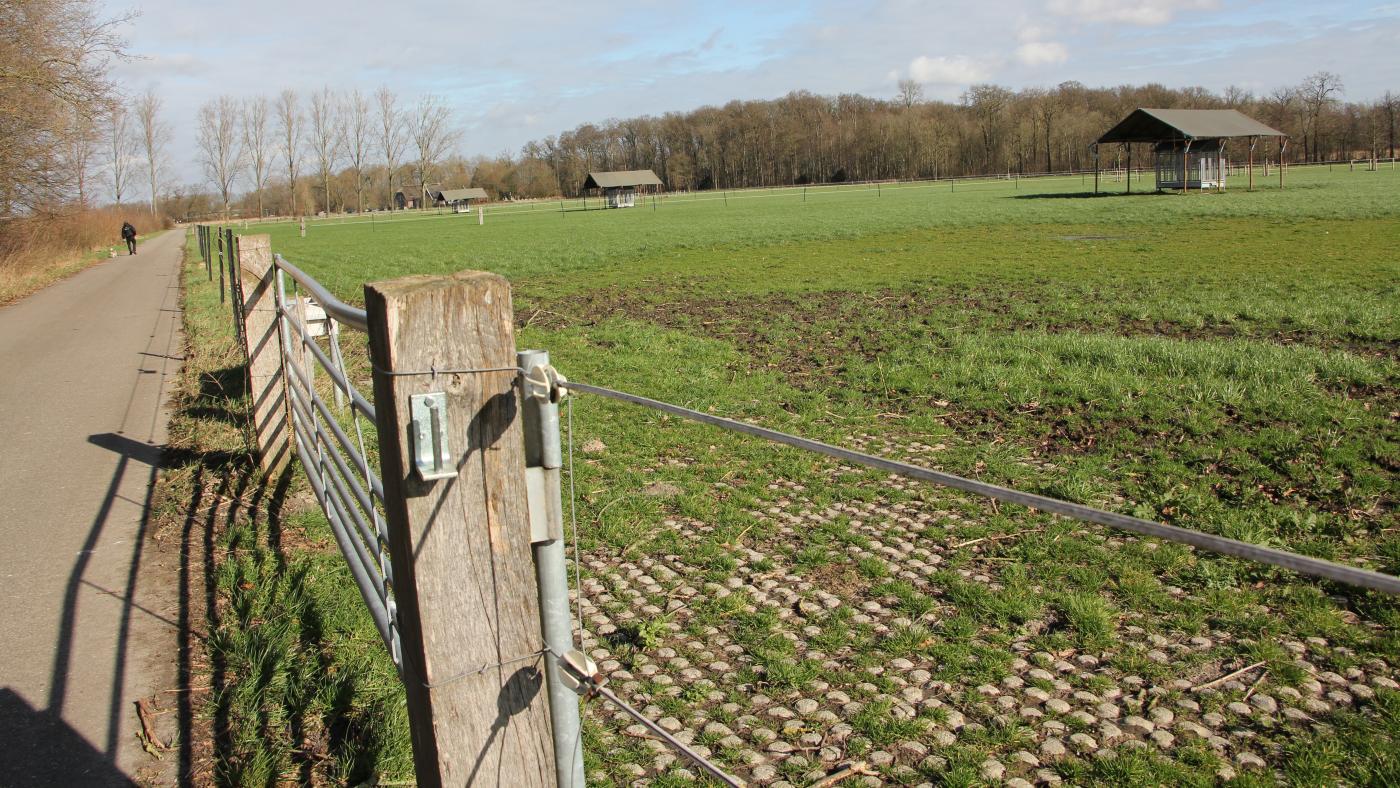PFAS contaminated soil to be cleaned up at previous ER extinguishing site

Until 2014, emergency response officers from Utrecht University used a field near Münsterlaan to practice the use of fire extinguishing agents. The field is located between the Faculty of Veterinary Medicine, the University Medical Centre and Tolakkerlaan avenue. At the time, the site was examined for toxic substances, but nothing seemed to be wrong. However, a recent study conducted by the municipality of Utrecht shows that the soil is contaminated with PFAS, a family of synthetic chemicals that are extremely persistent in the environment and human bodies. That’s why they are known as “forever chemicals”.
Project leader Frank Kooiman, from the UU, states: “In 2014, not much was known about the PFAS that the old extinguishing agents contain. The municipality has conducted further investigations at various locations in the city and discovered that the threshold value of this substance is being exceeded. That is why we were instructed to take action here.”
Harmful substances
PFAS is short for poly- and perfluoroalkyl substances (PFAS). According to the website of the National Institute for Public Health and the Environment (Dutch acronym: RIVM), these substances can affect the immune system and the reproduction system, and the development of fetuses. PFAS can also cause liver damage, kidney and testicular cancer and an increase in blood cholesterol levels. In addition, they can be harmful to nature and animals that come into contact with them, even if they only ingest small amounts of PFAS over a long period of time. Even though PFAS are not currently abundant in our food and water, RIVM states that long-term effects cannot be ruled out even in low doses. That is why the institute advises the Dutch government to make sure that human exposure to PFAS is as low as possible.
Knowledge about these toxic substances is still being acquired, which is why it took so long for the municipality to conduct further research. A few years ago, there was a nationwide commotion about the presence of PFAS in granules found on the artificial grass of fields where people, including youngsters, practice their sports.
Huge operation
According to Kooiman, the PFAS values detected on the field at Münsterlaan avenue are not high enough for people and animals to be at risk. Only a very small part of the substance has ended up in the groundwater, so there is no problem for the horses that graze there. This does not change the fact that tUU deems cleaning up the field an urgent task.
The university has mapped out the exact location and depth of the contamination in the ground. 2,200 cubic meters of soil will be excavated by a specialised company. Then, it will be replaced by new, clean soil. The contaminated soil must be removed and cleaned.
This entails a huge operation where hundreds of trucks must drive back and forth to clear the ground. The exact costs are not yet known, but the estimate is that the project might run into hundreds of thousands of euros. Kooiman hopes to complete the remediation works before the summer, in coordination with the municipality of Utrecht.